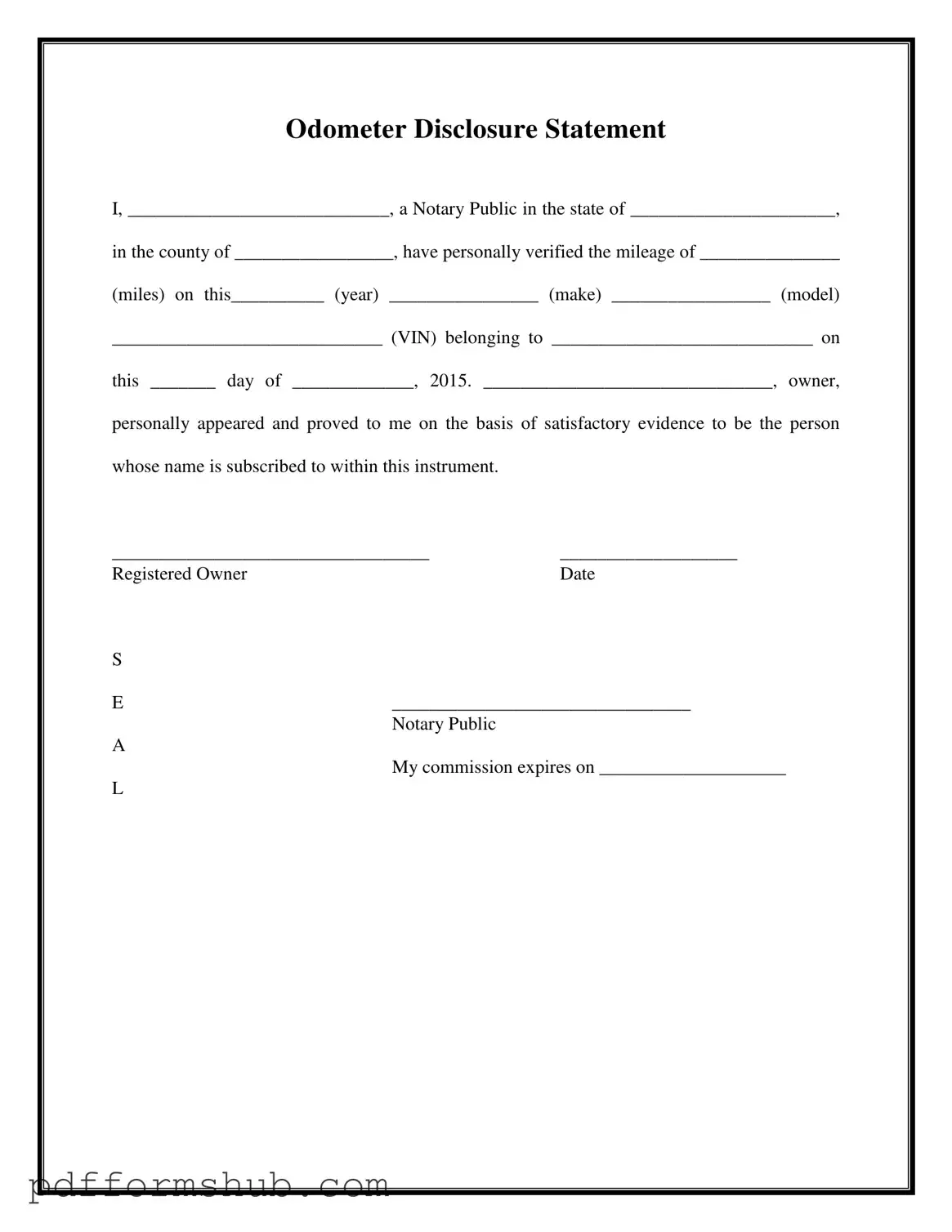Fill in Your Notarized Odometer Statement Form
The Notarized Odometer Statement form is a document that verifies the mileage of a vehicle at the time of sale. This form is typically completed by a notary public who confirms the accuracy of the odometer reading and the identity of the vehicle's owner. To ensure a smooth transaction, it is important to fill out this form accurately and completely.
Start the process by filling out the form below.
Customize Form

Fill in Your Notarized Odometer Statement Form
Customize Form

Customize Form
or
Free PDF Form
Short deadline? Complete this form now
Complete Notarized Odometer Statement online without printing hassles.